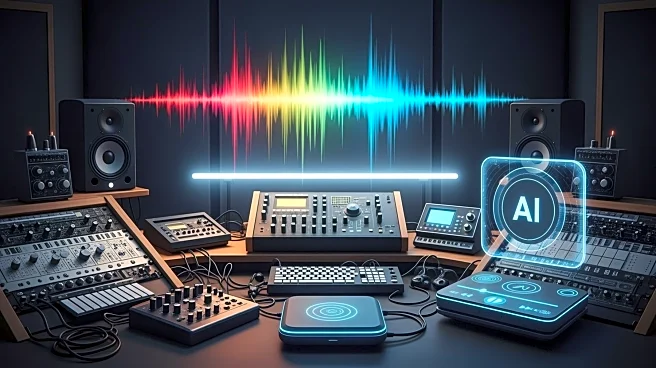What's Happening?
Spotify has announced a partnership with major music labels, including Sony, Universal, and Warner, to develop AI music products. The collaboration aims to create innovative tools that enhance the connection
between fans and artists while respecting copyright laws. The initiative is artist-centric, ensuring musicians' rights are protected and they are fairly compensated. Spotify's Co-President, Alex Norström, emphasized that technology should serve artists by protecting their rights and respecting their creative choices. The project is in early development, focusing on building products that use AI to improve fan engagement.
Why It's Important?
This partnership marks a significant step in integrating AI into the music industry, potentially transforming how music is created and consumed. By prioritizing artists' rights and consent, Spotify and its partners aim to set a standard for ethical AI use in music. This could lead to new revenue streams for artists and labels, while also addressing concerns about copyright infringement in AI-generated content. The collaboration may influence other tech companies to adopt similar practices, ensuring that AI innovation in music respects intellectual property rights.
What's Next?
As the project progresses, Spotify and its partners will likely develop specific AI tools and products that enhance music discovery and fan engagement. The industry will be watching closely to see how these developments impact artists' earnings and the broader music landscape. Stakeholders, including artists, labels, and tech companies, may need to adapt to new business models and legal frameworks as AI becomes more integrated into music production and distribution.
Beyond the Headlines
The ethical implications of AI in music are profound, as it challenges traditional notions of creativity and authorship. This partnership could lead to a reevaluation of copyright laws and artist compensation models, potentially setting a precedent for other creative industries. The long-term impact may include shifts in how music is valued and consumed, with AI playing a central role in shaping cultural trends.












